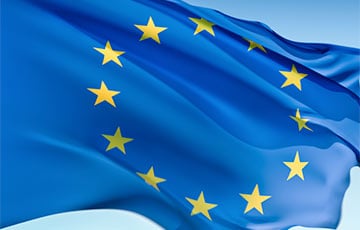European Parliament Deputies Demand To Change EU Policy Towards Belarusian Authorities
17- 22.03.2018, 15:49
- 42,161

The European Union must take a far more principled and determined position.
35 MEPs appealed to Vice-President of the European Commission Federica Mogherini and European Commissioner for Neighbourhood Policy and Enlargement Negotiations Johannes Hahn with a demand take a more principled position towards the Belarusian authorities.
Charter97.org publishes the full text of the appeal:
Federica Mogherini,
Vice-President of the European Commission,
High Representative of the EU for Foreign Affairs and Security Policy
Johannes Hahn,
European Commissioner for Neighbourhood Policy and Enlargement Negotiations
We, Members of the European Parliament, are writing to you regarding the current state of affairs in the relations between the European Union and Belarus. Two years that have passed since adoption of the Council conclusions on Belarus give us a good opportunity of stocktaking. We are concerned that in spite of meaningful steps of good will and openness demonstrated by the EU side, the situation with regard to basic human rights and democracy in Belarus is far from showing signs of any tangible progress and change. More specifically, we are alarmed to see that the issue of thorough reform of election legislation in Belarus does not receive proper attention on the EU-Belarus agenda.
As we all know, in February 2016, the EU lifted the restrictive measures for 170 individuals and 3 companies of Belarus. In addition, the EU went as far as to activate an entire package of measures, which led to significantly increased opportunities for Belarus’ trade, following the enhanced cooperation with the European Bank for Reconstruction and Development, the European Investment Bank, as well as abolishment of textile quotas. Consequently, the EU-Belarus bilateral trade has been enjoying constant growth, with the EU being the second largest trade partner of Belarus over the last years. Furthermore, the EU’s assistance volumes to Belarus are being increased intensely, for example, under the European Neighbourhood Instrument alone it amounted to €91.5 million in 2014-2017.
We believe, that all these and many more steps pro-actively taken by the EU in the course of the last two years should allow us, the EU, to expect some signs of reciprocity from Belarus’ side, first and foremost, in the field of basic human rights and democracy. This is not the case, however. In spring 2017, when peaceful protests caused by application of the Presidential Decree 3 were organised across the country, peaceful demonstrators, opposition and civil society members were crushed with brutalities and repressions. This resulted in politically driven persecutions against over 900 people.
Moreover, at the moment, the Belarusian authorities continue to hold two political prisoners, Mikhail Zhamchuzhny and Dzmitry Paliyenka, in country’s jails, while not a single previously released political prisoner has been ever rehabilitated. Over the recent months,
Brussels, 21 March 2018
judicial and other kinds of harassment were used against independent journalists with foreign accreditation, such as Belsat TV. Also, two leading independent internet portals, Charter 97 and Belarusian Partisan, experienced restrictions and blocking from the Ministry of Information. Opposition political parties and NGOs continue to be refused their legal registration in Belarus. Last but certainly not least, it is extremely upsetting that Belarus continues to apply death penalty, despite countless pleas of the EU at all possible levels and occasions.
Finally, when it comes to the issue of reform of Belarus’ election law, it is regrettable to see that official Minsk has chosen not to make a single genuine attempt in this regard as of yet. The recommendations of the OSCE/ODIHR and the Venice Commission have been formulated on a number of occasions, but remain to be consistently neglected and ignored a year after year, from one election to another. The local elections held in February earlier this year prove as yet another demonstration of the sad fact that the Belarusian electoral process as such continues to be nothing more than the Soviet-type imitation, with systemic manipulations on absolutely all its stages. This assessment has been acknowledged by most of the independent domestic and international experts.
This makes us to believe that the European Union must take a far more principled and determined position in demanding the Belarusian authorities to undertake, with no further delay, a truly fair and comprehensive reform of country’s election legislation and related procedures, along with the recommendations of the OSCE/ODIHR and the Venice Commission. We are strongly convinced that the quality of elections is exactly the issue which must become a clear-cut priority in the overall EU-Belarus agenda in months and years to come, inter alia, within the framework of the EU-Belarus Human Rights Dialogue. Last but certainly not least, we call to review the EU’s position in the ongoing negotiations on the EU- Belarus Partnership Priorities so as to ensure that possible progress in other areas of cooperation is made conditional depending on the issue of swift and thorough election legislation reform by the Belarusian side.
With this in mind, we wish to reiterate our concern that the EU-Belarus relations, as they are being currently developed, tend to be increasingly dominated by questions of economy, trade and assistance. We remain confident that EU-Belarus relations must continue to be based, first and foremost, on respect for human rights, democracy and the rule of law.
Yours sincerely,
Petras Auštrevičius
Elmar Brok
Gunnar Hökmark
Anna Elżbieta Fotyga
Ana Maria Gomes
Beatriz Becerra
Michał Boni
Marietje Schaake
Jaromír Štětina
Catherine Bearder
Monica Macovei
Ivan Štefanec
Traian Ungureanu
Nessa Childers
Linnéa Engström
Ramón Luis Valcárcel Siso
María Teresa Giménez Barbat
Bronis Ropė
Jasenko Selimovic
Sophie in 't Veld
Helga Stevens
Julie Ward
Hilde Vautmans
Zigmantas Balčytis
Theresa Griffin
Anneli Jäätteenmäki
Anna Maria
Corazza Bildt
Pavel Svoboda
Sandra Kalniete
José Inácio Faria
Bas Belder
Marita Ulvskog
Jytte Guteland
Julia Pitera
Matthijs van Miltenburg










